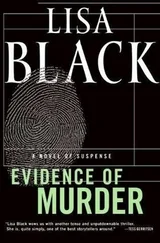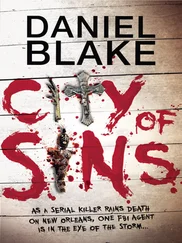And sure, Mustafa Bayoumi’s alibi was provided by his mother, and her alone. But it was hard to see what they could do other than take it at face value. Yes, Sameera could have been lying – she’d said she’d do anything for him, after all – but to test that, they’d have to give her the full nine yards, on a hunch that was flimsy at best.
It didn’t take much imagination to see how carpeting a recent widow that way would look.
Because Patrese and Beradino had to accept Mustafa’s alibi, they had no probable cause to go search the house in Oakland for anything that might connect him to the fire. Even if they did get a warrant, and even if he had been involved, he was clearly a smart kid. He’d have ditched any clothing and other items that might have linked him to the blaze long before now.
That was how they consoled themselves, at any rate; because nothing and no one else in Redwine’s life seemed to point to any other suspects.
Every resident of The Pennsylvanian had been interviewed, as had all doormen, cleaners and maintenance workers; anyone with access to the building, in other words. No one had seen anything.
‘Either they’re on the level, or someone should win a damn Oscar,’ Patrese said.
It still didn’t answer what had started as the $64,000 question and was surely now into six figures – how had the killer got into The Pennsylvanian?
They retraced Redwine’s movements on the last day of his life. He’d been at Mercy in the morning, given a speech at a conference downtown after lunch, and been due to go to the opera – La Bohème – that evening. Nothing untoward.
They’d taken twelve officers from the regular police department and used them to turn Redwine’s life upside down. No friend, acquaintance or incident was deemed too insignificant or commonplace; everyone was followed up, checked out.
TIE, Beradino told the uniforms, TIE – trace, interview, eliminate as a suspect.
They found zilch. Redwine had been a regular attendee at church, done his part at charity fundraisers, and enjoyed hiking and fishing in his spare time. No embittered ex-girlfriends, no secret gay lovers, no outstanding sexual harassment cases. Even the professional jealousies were no more than the usual found among surgeons, which was to say at once endemic and excruciatingly professional.
All in all, no reason for anybody to have killed Redwine, let alone by such a horrific method as burning alive.
The fire had destroyed any physical evidence worth the name, so Patrese and Beradino could find no joy there either. Instant forensic breakthroughs were strictly the preserve of TV shows titled with snappy acronyms. Pittsburgh PD didn’t even have its own DNA lab. It had to use the FBI’s, which had a backlog running into the hundreds of thousands.
It couldn’t use private labs, as their results were inadmissible in court, due to concerns over accountability and maintenance of the chain of custody. Only government facilities were acceptable, though the technical standards at private labs were much higher; not surprisingly, perhaps, given that they were staffed by the best testers, many of whom had left the state sector because they wanted to be paid more, exacerbating staff shortages in public labs and increasing the backlog…
Franz Kafka was not dead, clearly. He was alive, well, and living in Pittsburgh.
Nothing of great value seemed to have been taken, ruling out burglary as a motive. Redwine was no serious collector of art, his TV set and computers were still in the apartment (though burnt to cinders, obviously), and everyone who knew him agreed that he never carried more than a hundred bucks or so in cash.
Every known arsonist within Allegheny County was interviewed, bar those already in prison. All of them had alibis for the night in question. Most said they’d pick easier targets than a portered apartment block, and that they certainly wouldn’t kill anyone in the process. Arson was a crime against property, not people.
Self-serving bullshit, Patrese thought, but anyway…
There was always the possibility that one of the uniforms had stumbled across the crucial bit of information without realizing it. Officers were human, not computers. Long days made them tired, repetitive interviews numbed and bored them. They could miss things and make mistakes, especially towards the end of a shift. But this was the same for every homicide investigation in history. Nothing you could do about it.
There are three nightmare scenarios for cops working homicide cases, and it looked very much as though Beradino and Patrese were facing one of them.
First, that they’d overlooked something so screamingly obvious that, if they ever did find it, they’d almost certainly be carpeted from here to Cincinnati and back again.
Second, that Redwine’s murder was a case of mistaken identity, and that in order to find the perpetrator, they’d need to discover first who he thought he’d killed.
Third, that the murder was the type of case that’s the absolute hardest to solve; a stranger homicide, where the connection between killer and victim is obvious only to one or both of them.
Killer spotting victim in the street; victim in the wrong place at the wrong time; victim who’d caught the attention of killer; and any or all of these happening for reasons unknown to the police, because they could simply have never imagined or reconstructed them, short of knowing each quotidian incident and occurrence in the lives of every single one of Pittsburgh’s citizens, and even the Soviet Union hadn’t managed such overwhelming control over its people.
Redwine’s ex-wife and sons had flown in from Tucson, their eyes rimmed red with tears and fatigue.
That was the worst part, Patrese felt; having to look these good people in the eye and say yes, we’re doing all we can to find the murderer, we’re following all lines of inquiry, we’re confident we’ll bring him to justice; when all the while he knew, and he knew they knew, that what he was really saying was this: we don’t have a damn clue.
Not a goddamn clue.
Thursday, October 28th. 3:51 p.m.
Flames leapt high and jagged around the burgers on the grill.
Crammed into a sweltering kitchen, wearing a ridiculous polyester uniform with her hair in a net as though she’d just been caught by a trawler, Jesslyn’s anger mashed in tight oblongs.
The interview had been bad enough. Kevin the manager had proved as snotty as he was spotty, sneering at her throughout it all with a contempt he didn’t even bother to disguise. Why did she want this job? Why had she left her previous employment? Did she have references? Had she ever worked in the fast-food industry before?
And on, and on, and on, when they both knew this was a minimum-wage job that almost literally a monkey could do, and here was Kevin treating it as though he were personally responsible for choosing the next UN Secretary-General.
She even had to work some Sundays, her religious convictions be damned. Not because Kevin had forced her to – she could have claimed her constitutional right to freedom of religion and threatened him with a lawsuit if he’d even tried – but because she’d done Sunday shifts at Muncy so she could preach in the chapel there. Her suddenly spending every Sunday at home would arouse suspicion in a moron, and Mark was certainly not that.
But even if she did find a way to tell him about Mara, she thought, he wouldn’t understand, not really. Prison was one of those things you could never explain. If you knew what it was like, you didn’t need to be told. If you didn’t know, mere words weren’t enough.
Prison was a pressure cooker, a place of white heat where life had a suffocating intensity. Friendships, still less love affairs, weren’t casual, to be picked up and put down whenever one felt like it; they were life-rafts of survival in a place that tried to crush the soul, raging torrents of defiance and pride in being human.
Читать дальше











